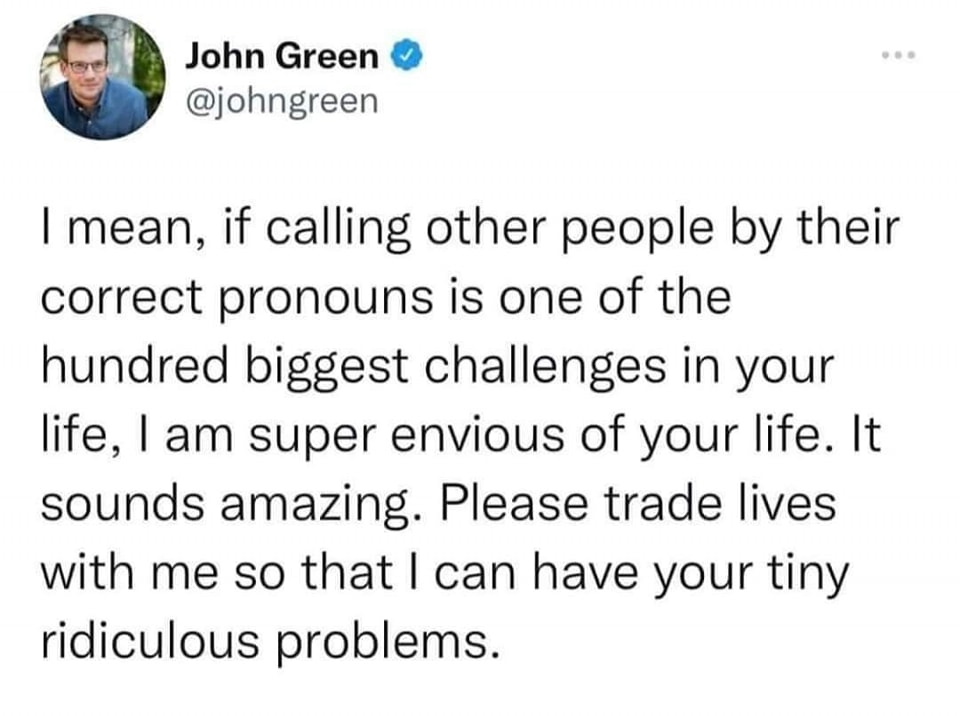this post was submitted on 28 Apr 2024
1546 points (92.3% liked)
Microblog Memes
6664 readers
4465 users here now
A place to share screenshots of Microblog posts, whether from Mastodon, tumblr, ~~Twitter~~ X, KBin, Threads or elsewhere.
Created as an evolution of White People Twitter and other tweet-capture subreddits.
Rules:
- Please put at least one word relevant to the post in the post title.
- Be nice.
- No advertising, brand promotion or guerilla marketing.
- Posters are encouraged to link to the toot or tweet etc in the description of posts.
Related communities:
founded 2 years ago
MODERATORS
you are viewing a single comment's thread
view the rest of the comments
view the rest of the comments

Child - das Kind - grammatical gender: neuter. Referred to in context using the gender-neutral pronoun 'es' (it). The pronoun used correlates with the grammatical gender of the noun used, not the gender of the person referred to.
Eg Ein Kind lacht. Es hat etwas gesehen. (transl: A child laughs. He/she/they saw something.)
I know. But generally, the gender of the noun describing a person correlates with the gender of the person described strongly.
Ok but my point is that when it doesn't correlate, it becomes clear how grammatical gender is independent from the person's gender.
It becomes even clearer when you consider all nouns by definition have a grammatical gender - inanimate objects, abstract concepts, etc, even though the thing described clearly doesn't have a gender. Eg die Tür ist offen. Ich schliesse sie. (transl.: the door is open. I close it.) 'Sie' being the female pronoun used to refer to the grammatically female door.